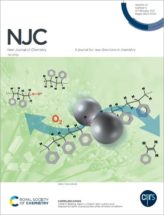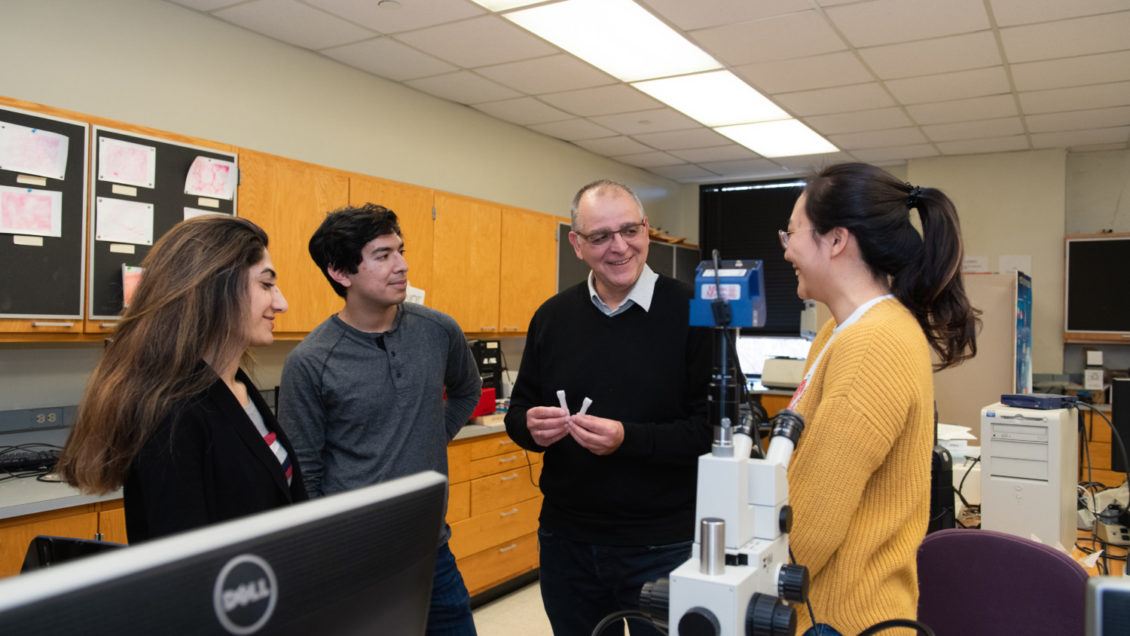Igor Luzinov of Clemson University is teaming up with an old friend for research that could lead to a new way of recycling polystyrene, a widely used plastic that shows up in products ranging from disposable food containers to foam packaging materials.
Luzinov, the Kentwool Distinguished Professor, is working with a team that includes Viktor Balema, a senior member of the scientific staff at Ames Laboratory, a U.S. Department of Energy national lab located on the campus of Iowa State University.
The research team Luzinov and Balema are leading has shown it’s possible to use ball-milling, a common industrial practice, to break polystyrene’s molecular chains. It could prove to be a crucial first step in making it economically and environmentally practical to recycle polystyrene.

For the consumer, polystyrene is the type of plastic with the number 6 in the middle of the triangular, three-arrow recycling symbol often found on the bottom of containers.
The research has big potential because of how abundant polystyrene is and how much of it ends up taking space in landfills. Hundreds of millions of metric tons of polystyrene are produced each year, and most of it is discarded, according to Ames Laboratory.
Luzinov and Balema first met more than 20 years ago when Luzinov was a postdoctoral researcher at Iowa State. While they share a background in chemistry, it wasn’t science that brought them together.
“Our daughters were in the same high school class,” Luzinov said. “They realized they were not only from Ukraine but from the same city. At that time, we did not collaborate. We were just friends.”

Luzinov, who joined Clemson’s faculty nearly 20 years ago, has stayed in touch with Balema through the years. They started collaborating on polystyrene research about a year ago.
The paper they helped co-author, along with five other researchers, made the cover of New Journal of Chemistry and was featured on the Energy Department’s Office of Science website.
Kyle Brinkman, chair of Clemson’s Department of Materials Science and Engineering, said the project shows the high-level of scholarship that Luzinov brings to collaborations and Clemson’s excellence in advanced materials research.
“The attention this research has received in the academic community is a testament to its potential to advance sustainable recycling practices,” Brinkman said. “I congratulate Dr. Luzinov and all who were involved in this promising breakthrough.”

To recycle polystyrene, the molecular bonds that hold it together have to be broken. One way is to heat the polystyrene to more than 300 degrees Celsius, but that is energy intensive and prohibitively expensive to do on a large scale.
The research team instead put commercial polystyrene inside a ball mill. When the device is turned on, it shakes, and small metals balls inside smash against the polystyrene pieces, facilitating chemical transformations.
The team found that ball-milling broke the molecular chains– called polymers– into chains that were 10-20 times shorter. Shortening the chains means the polystyrene would be less viscous when melted and therefore easier to recycle.
Most surprisingly, though, the team found ball-milling also produced single molecules called monomers.
“We can produce monomers at low temperatures by ball milling,” Luzinov said. “This was not known before. You take polymers, ball-mill them and extract the monomer. From the monomer, you can make a new polymer.”
The ability to break down polystyrene into monomers could prove to be key in separating polystyrene from impurities, such as the various additives commonly included when it is manufactured. That would mean the recycled polystyrene could be used for a wide variety of applications, including food and medical uses.
Balema said the collaboration has gone well. He brings a background in organic chemistry and experience in industry, while Luzinov offers deep knowledge in polymer chemistry.
“Igor is open to collaborations and is reliable,” Balema said. “He is a very ethical person. He has all the features you would look for in a good collaborator.”
The team is now seeking funding to advance the research in both fundamental and applied science.
“You can get 10-15% of monomer, which is not enough, but it’s something,” Luzinov said. “We need to work to make it a much higher yield.”
The title of the paper is “Depolymerization of polystyrene under ambient conditions.” Co-authors from Clemson are Luzinov and Ph.D. student Mastooreh Seyedi. Co-authors also include Balema, Ihor Z. Hlova, Scott L. Carnahan, Oleksandr Dolotko and Aaron J. Rossini.
“We didn’t make the silver bullet yet,” Balema said, “but we did show it’s possible to make the silver bullet.”
Get in touch and we will connect you with the author or another expert.
Or email us at news@clemson.edu

